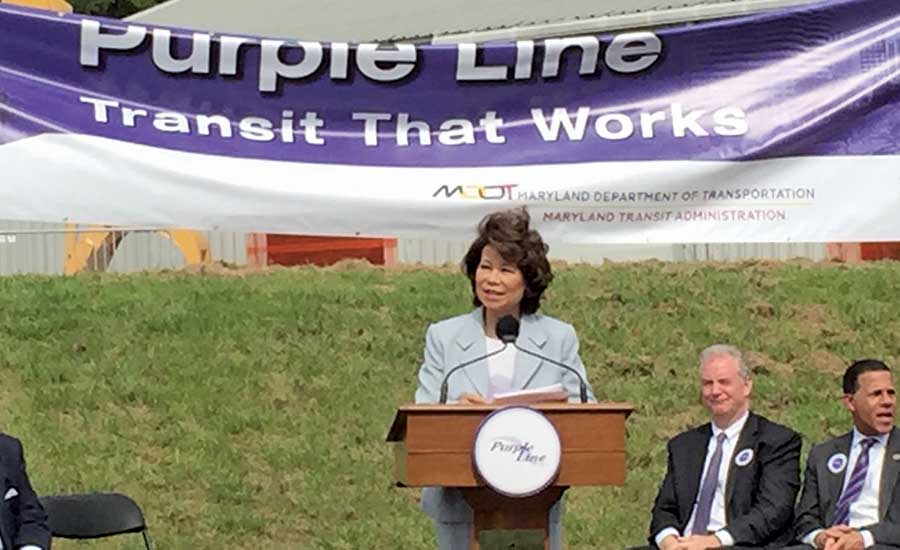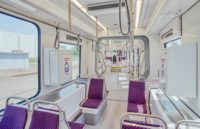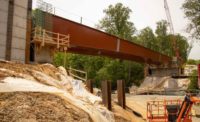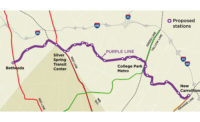Just weeks after being on the brink of cancellation, Maryland’s Purple Line light-rail project officially has begun construction. Riding the momentum of a favorable federal appeals-court ruling in July and a signed $900-million federal funding commitment, Gov. Larry Hogan (R) punctuated an Aug. 27 groundbreaking ceremony by demolishing a state-owned storage building at the site of the 16-mile transit system’s new operations center in the Washington, D.C., suburbs.
“We made it,” said state Secretary of Transportation Pete K. Rahm, referring to the $5.6-billion public-private partnership’s arduous preconstruction journey, which included several lawsuits over environmental impacts and financial viability over the past 25 years. Hogan threatened to drop the project upon taking office in 2014 unless the state share of the then-estimated $2.45 billion cost could be cut. Increased local government contributions and $550 million in savings from the winning bidder, Fluor-led Purple Line Transit Partners, put the project back on track. But before an original mid-2016 groundbreaking, it was stymied again by a new lawsuit over ridership projections.
The Purple Line languished for nearly a year, leading the Maryland Transit Administration to scale back preconstruction and threaten cancellation until a July emergency U.S. appeals-court ruling allowed work to begin. Transportation Secretary Elaine Chao then OK’d the line’s New Starts grant, erasing doubts that federal funding would be lost to the Trump administration’s proposed transit cuts.
Jeffrey D. Ensor, agency director of delivery and finance, says Purple Line Transit Partners is taking a “shotgun approach” to launch utility relocation and other work along the entire route across two heavily populated Maryland counties. Among initial major activity will be construction of a ¼-mile-long tunnel, east of Silver Spring, that will use cut-and-cover and the New Austrian Tunnel Method excavation approaches. Ensor expects excavation to begin shortly on another tunnel to connect the Purple Line with the existing Bethesda Metrorail station, one of four links to Washington’s primary transit system. While remaining legal issues still could complicate the current 2022 completion, “the court sent a pretty strong signal that we could go ahead.”






Post a comment to this article
Report Abusive Comment